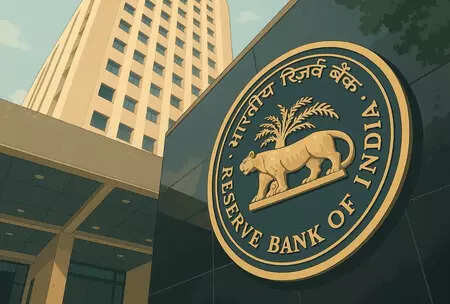The Indian Staffing Federation urges the finance ministry to lower the GST rate on employment services from 18% to 5%. ISF argues this reduction would boost formal job creation, enhance competitiveness in sectors like healthcare and retail, and align with national employment goals. They believe the fiscal impact would be minimal while promoting formalization and expanding the tax base.
A Shot in the Arm for Jobs? The Staffing Industry’s Bold GST Proposal
India’s staffing industry is making a compelling case: slash the Goods and Services Tax (GST) on their services, and watch formal job creation flourish. Currently saddled with an 18% GST, key players are advocating for a significantly reduced 5% slab, arguing that such a move would not only boost their sector but also catalyze formal employment across the nation.
The rationale is pretty straightforward. The 18% GST adds a considerable cost to businesses utilizing staffing services. This makes formal hiring a more expensive proposition, especially for small and medium-sized enterprises (SMEs) that are particularly sensitive to budgetary constraints. Consequently, many companies opt for informal hiring practices to circumvent these costs, leading to a less regulated and less secure work environment for employees. This has direct and wide reaching effects on the types of jobs that are created.
A lower GST rate, proponents argue, would level the playing field. By reducing the financial burden on businesses, it would incentivize them to embrace formal staffing solutions. This, in turn, would lead to a surge in formal job creation, offering employees better wages, benefits, and social security protections. Think of it as a ripple effect: reduced tax, increased formal hiring, and a more robust and secure workforce.

But the benefits extend beyond just job creation. A simplified and lower GST structure could also streamline compliance for staffing companies. The current 18% rate, with its associated paperwork and complexities, adds to the operational overhead. A 5% slab would simplify the tax regime, reducing administrative burdens and freeing up resources for staffing firms to focus on their core business: connecting talent with opportunities. This could allow for more specialization and innovation in the services offered.
The Confederation of Indian Industry (CII) has echoed this sentiment, highlighting the critical role the staffing industry plays in facilitating employment across various sectors. They emphasize that a reduced GST rate would not only benefit the industry itself but also contribute to the overall economic growth of the country by fostering a more organized and productive workforce. The multiplier effect of this boost to the staffing industry should not be understated.
Furthermore, a move to a lower GST bracket aligns with the government’s broader objectives of promoting formalization of the economy and enhancing social security coverage for workers. By incentivizing formal hiring, the government can bring more workers into the social security net, ensuring they have access to essential benefits such as healthcare, retirement funds, and insurance.
Of course, the proposal raises questions about potential revenue implications for the government. However, the staffing industry argues that the increased formalization and economic activity resulting from the lower GST rate would ultimately offset any revenue loss. More formal jobs translate to higher tax collections from individuals and businesses, creating a virtuous cycle of economic growth and revenue generation.
Consider the potential for increased productivity. Formal employees are typically better trained and more motivated, leading to higher output and improved quality. This, in turn, boosts business profitability and competitiveness, driving further economic expansion. It’s a win-win scenario where both businesses and employees benefit from a more structured and supportive work environment. We also have to consider the impact on sectors dependent on the staffing industry.
While no decision has been made, the staffing industry’s proposal presents a compelling case for a GST rate cut. It underscores the potential for targeted tax policies to stimulate job creation, promote formalization, and drive economic growth. The hope is that policymakers will carefully consider these arguments and recognize the strategic importance of the staffing industry in building a more robust and inclusive economy. See how other industries are impacted by government policy on our page about [recent tax changes for small businesses](internal-link).
Ultimately, the question is whether the government sees the potential for a significant return on investment in terms of job creation and economic growth. A lower GST rate for the staffing industry could be a powerful catalyst for positive change, unlocking the potential of India’s workforce and driving the country towards a more prosperous future.







